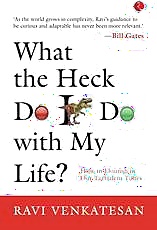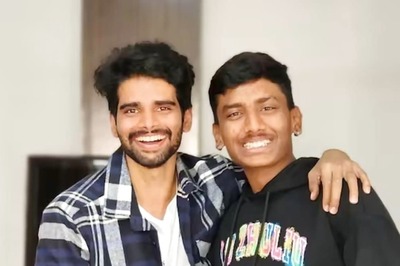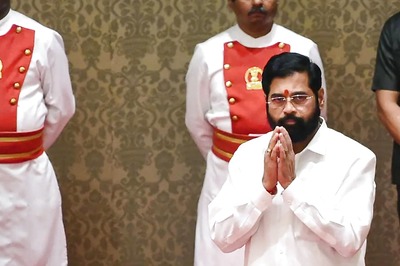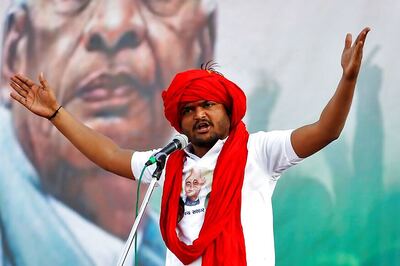
views
When it comes to work, a person today faces a bewildering set of choices. It felt easier 20 or 30 years ago, when the world was simpler. If you were ambitious and came from a middle-class family, you had to be an engineer, doctor, scientist, teacher or a civil servant. Today, success can take infinitely more forms. With the rise of an array of new platforms, you can do anything from anywhere if you can find a way to make a living out of it; you can be a maths tutor, stand-up comedian, a writer, bitcoin trader or an entrepreneur. Unfortunately, there is little by way of counselling to help people figure out their path in this thicket of choices. This is what leads to anxiety, confusion and even despair.
The challenge or trick is in finding the convergence or intersection of what you love doing, what you are good at, what the world needs and what you can get paid for. The Japanese have a term for this — ‘Ikigai’ or your reason for living. It is believed to be the key to satisfaction and longevity and it turns out to be a useful way to think about what you should do in a world of many confusing possibilities. Today, this age-old concept is manifesting as what is called ‘The Passion Economy’, which is an economy driven by people who find a way to build small businesses around what they are good at and what they love doing. In a book by the same name, Adam Davidson shows that there are unprecedented new opportunities to make a living while doing what you love. It is no longer a choice between being rich and miserable doing something you don’t like, or being happy but poor.
Adam gives many examples of ordinary people who could see an opportunity for a small business, which is a perfect fit with their talent and interests, right under their nose. He goes on to provide a set of principles of success for these businesses. A good example of a passion entrepreneur whom we work with at GAME, is Sumedha Mahajan, a young woman from Amritsar who runs India’s first sportswear brand specifically designed for women. Sumedha is an endurance runner and whilst running a 1,500 kilometre race from Delhi to Mumbai, she experienced first-hand the challenges that women runners faced with their gear. This inspired her to start Brakefree; her mission is to ensure that women don’t have to ‘adjust’ to men’s sportswear. Brakefree is on a tear.
Kuldeep Dantewadia is another passion entrepreneur. After getting an MBA in 2009, Kuldeep boarded the Jagriti Yatra, a train journey that carries aspiring and accomplished Indian innovators across the length and breadth of the country. The experience affirmed his determination to do something about the environment. Driven by enthusiasm, and without much of a plan, Dantewadia, with a few friends, started collecting garbage and spent six months understanding the garbage economy. In 2011, Dantewadia and two of his friends formed Reap Benefit with two key objectives: finding behavioural change models and developing affordable ways towards more sustainable living. They went beyond garbage and looked at water, energy and green habitats. As of 2021, they have successfully engaged 34,000 young leaders who have diverted 665,000 tons of waste from landfills, saved 1.7-megawatt hours of energy and 46 million litres of water. And they are just getting started.
Passion economy may sound similar to gig economy, but to me, it feels fundamentally different. Gig economy seems to put the platform (such as Uber, DoorDash or Swiggy) at the centre and people are simply the necessary hands that perform tasks, for which they are paid some nominal amount. The bulk of the value created is appropriated by the platform owners and customers. In passion economy, the individual is at the centre. The individual sees an opportunity to build a product, service or experience that reflects who they are — what they love, they value and excel at — and find a segment that is willing to pay for it. They leverage platforms as needed but don’t serve the platform nor are exploited by it. Andreessen Horowitz, one of the top venture capital firms in the world, sees passion economy as the future of work and gives examples of teachers earning thousands of dollars each month by teaching virtual classes on various platforms, the top-earning writer on the newsletter platform Substack earning more than $500,000 a year from reader subscriptions and the top content creator on Podia, a platform for video courses, making more than $100,000 a month.
ALSO READ | Policy Talk | Meta Skills Will Get You the Next Job, Not Your College Degree
I find the idea of passion economy very empowering and optimistic at a time where there is so much gloom and doom about the future of jobs and work. However, if this idea is to take off, it will require lots of catalytic interventions to make it a movement. The idea has to catch on and become more aspirational by showcasing lots of successful passion entrepreneurs. People will need some training to spot opportunities around them and will have to learn the basics of business, know what platforms exist, learn from peers, understand how to access capital and so on. This is the mission at GAME (Global Alliance for Mass Entrepreneurship), the organization I founded to create an entrepreneurial movement.

Read all the Latest Opinion News and Breaking News here




















Comments
0 comment